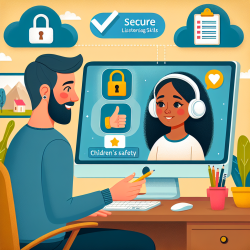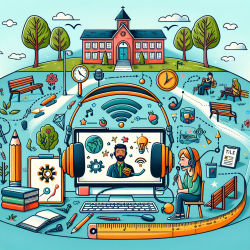Ensuring the safety of children during online therapy sessions is a critical concern for school social workers. As more schools turn to online platforms for therapy services, understanding and implementing best practices is essential to protect the well-being of students. In this blog, we will discuss key strategies that school social workers can adopt to ensure a safe and effective online therapy environment.
Understanding the Importance of Safety in Online Therapy
The transition to online therapy has provided numerous benefits, including increased accessibility and flexibility. However, it also presents unique challenges related to privacy, security, and the overall safety of children. School social workers play a pivotal role in mitigating these risks and ensuring that therapy sessions are conducted in a secure manner.
Best Practices for Ensuring Safety in Online Therapy
To create a safe online therapy environment, school social workers should consider the following best practices:
- Use Secure Platforms: Ensure that the online therapy platform being used complies with relevant privacy laws and regulations, such as HIPAA and FERPA. This includes using encrypted communication channels to protect sensitive information.
- Obtain Informed Consent: Clearly communicate the nature of online therapy to parents and guardians, and obtain their informed consent. This includes explaining how sessions will be conducted, what measures are in place to protect privacy, and any potential risks involved.
- Conduct Regular Risk Assessments: Periodically review and assess the security measures in place to identify any vulnerabilities. This includes evaluating the platform's security features and ensuring that all software is up to date.
- Maintain Confidentiality: Reinforce the importance of confidentiality with both students and their families. Ensure that sessions are conducted in private settings where interruptions are minimized, and encourage students to use headphones to maintain privacy.
- Monitor and Report Concerns: Be vigilant in monitoring for any signs of distress or safety concerns during therapy sessions. Have a clear protocol in place for reporting and addressing any issues that arise.
- Provide Training and Support: Offer training for both therapists and students on how to use the online platform safely. This includes educating them on recognizing and responding to potential security threats.
Why School Social Workers Should Take Action
By adopting these best practices, school social workers can significantly enhance the safety and effectiveness of online therapy sessions. Ensuring a secure environment not only protects children but also fosters a more trusting and productive therapeutic relationship. Taking proactive steps to safeguard online therapy sessions demonstrates a commitment to the well-being of students and can lead to better outcomes. School social workers are encouraged to review their current practices and consider implementing the strategies outlined above to enhance the safety of their online therapy services.
Next Steps
If you are a school social worker looking to improve the safety of your online therapy sessions, consider partnering with a reputable online therapy provider like TinyEYE. Our platform is designed with robust security features to ensure the highest level of protection for students. Contact us today to learn more about how we can support your efforts in providing safe and effective online therapy services.










